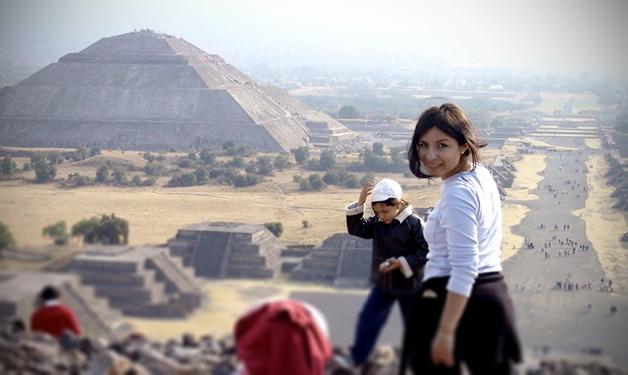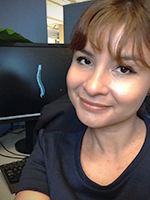
Meet Ana – a scholarship brought her to Canada, a love of SCI research made her stay.
Q: What is your research area of interest? Why are you interested in this type of research?
A: I’m interested in Spine Research from two perspectives:
- Clinical Research: As a clinician, I am interested in understanding the clinical evolution in surgical patients with a wide range of diagnoses that include degenerative, oncology, and traumatic spine conditions. I focus on recording accurately, and in real-time, all the Adverse Events (AEs) in each patient admitted to the Acute Spine Unit at VGH, from admission to discharge. Furthermore, I am interested in identifying, for those that develop infections, the types of pathogens that colonize or affect these patients during their stay. The goal is to describe the clinical evolution of these patients by identifying AEs, finding correlations and hopefully, develop models that predict and help prevent AEs in this population to ultimately improve quality of life, reduce re-admissions, and reduce health care costs.
- Basic Science Research: I am fascinated with mechanisms of disease. The more we understand what is going on with the patient at the microscopic level, the better we’ll be able to improve diagnostic and therapeutic tools and treatments. I have recently been involved with the CAMPER project. Its goals include identifying inflammatory and structural biomarkers during the early stages of Spinal Cord Injury (SCI) in order to predict the severity of SCI and to better understand SCI pathophysiology.
Q: What has been the proudest moment of your career thus far?
A: There have been quite a few. The first was being part of a highly competitive BSc in Basic Biomedical Research when I was 18 years old. I had the opportunity to be educated directly in research laboratories and away from the typical way schools teach. Furthermore, I was able to publish part of my undergrad research work in peer-reviewed journals. Another proud moment was when I was awarded an international scholarship to do my graduate studies here in Canada and the accomplishment of those studies. More recently, I am proud to have been accepted to work part-time in Dr. Kwon’s laboratory as I’m able to work with patients, do clinical research on the same population, and now help to improve knowledge from the bench side.
Q: What’s the best work advice you were ever given or would pass on to budding, young researchers?
A: Take your time to understand and have a broad view of your topic: look at it from different perspectives including from the macro to the micro levels and vice versa. It may take time but the more solid your understanding is, the better your research questions and solutions will be.
Read a lot and not only on your area of interest but also on other non-related topics. As well, talk to people researching not only in your area, broaden your spectrum, the craziest ideas or solutions may sometimes come from unexpected sources.
Experimental work doesn’t have to fit your ideas, be observant; sometimes experiments are well done and they tell you something different, even mistakes sometimes lead you to new ideas and discoveries.
Don’t give up easily.
Q: How do you like to spend your non-working hours?
A: I like to spend it with my seven-year old son. Besides his after-school activities, we spend time exploring Vancouver, like going to Science World, the cinema (we are movie lovers), museums, and parks. The rest of the time I like to read, photograph people and places, drawing, listening to music from around the world, learning about home décor, and more recently, learning to blog.
Q: What would you do if you weren’t a researcher?
A: I would have been a medical doctor or surgeon. Back in Mexico, I was accepted into medical school. However, I chose to further compete and eventually got accepted into a highly competitive program leading to a research-oriented career in basic biomedical research.
Q: What’s your healthiest habit?
A: Walking, I walk a lot! And smiling - it is amazing how many health benefits smiling has!



